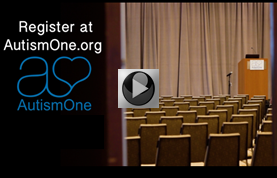How Close Are We To An Autism Cure? Part 2
Although toxins from industry, agriculture, and more shape the environment for children with autism, the largest and most impacted environmental factor for autism remains the internal ecosystem living in the intestines. That environment is shaped by complex communities of microbes interacting with the diet and the immune defenses of the child. The combined effect of environmental poisons and microbial chemistry directly influence the immune system in critical ways, while also affecting gene expression. The consequence of this interaction is disruption of the vital regulatory mechanisms of the endocannabinoid system (ECS). The ECS has control over mood, cognition, and immune regulation, and its dysfunction is recognized as the root cause of epilepsy, inflammatory bowel disease, cardiovascular disease, type II diabetes, obesity, and neurodegenerative illnesses like Alzheimer’s. Our new research points to the role of Vitamin D deficiency and changes in its binding protein, the gut ecosystem and dysregulation of the ECS as the primary issues in the majority of autism symptoms. Ultimately, the ECS also regulates brain physics in a way that disconnects neuro-processing. All of these issues must be properly repaired for each child to obtain their optimal functioning.
James Jeffrey Bradstreet, MD
Dr. Bradstreet received undergrad and medical degrees from University of South Florida. His residency training was at Wilford Hall USAF Medical Center, with training at Brooks School of Aerospace Medicine and Randolph AFB. He is an adjunct professor and faculty for Autism Collaboration & Education at Western U in CA and a visiting professor at Southwest College of Naturopathic Medicine. He is extensively published on biomedical issues of autism and was PI of two landmark studies: 1) involving a new methodology to view the brain with ultrasound, and 2) a double-blind study of the use of transcranial magnetic stimulation using a method known as MRT, for the treatment of autism -- both registered with clinicaltrials.gov. Phase one of the ultrasound study was recently published in Frontiers in Human Neuroscience, and the MRT study completed in June of 2014. He is director of the Brain Treatment Center of Atlanta and is licensed in Georgia, Florida, California and Arizona.





